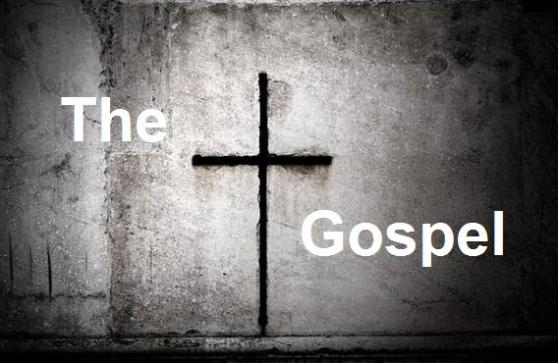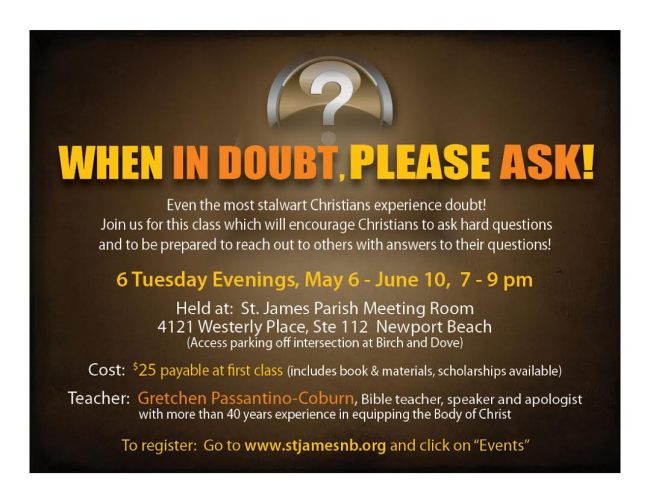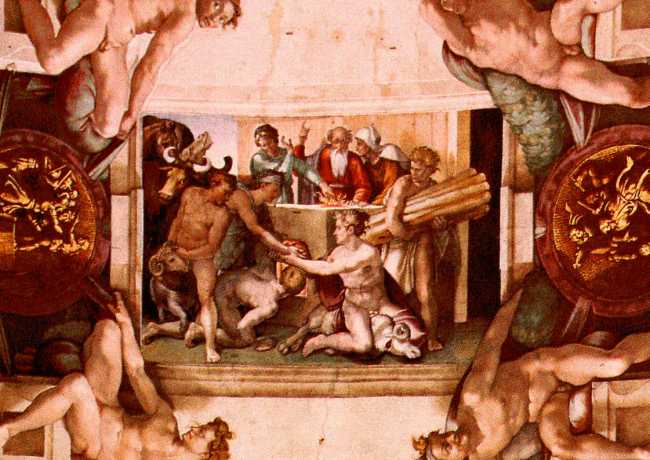by Bob and Gretchen Passantino, © Copyright 2003

The night Jesus was arrested, before his trial and crucifixion, he prayed alone in the Garden of Gethsemane, having asked three of his disciples to wait nearby, praying for him. Luke tells us, “He withdrew about a stone’s throw and prayed, ‘Father, if you are willing, take this cup from me; yet not my will, but yours be done'” (Luke 22:41-42). Matthew records Jesus as making his request of the Father twice: “Going a little farther, he fell with his face to the ground and prayed, ‘My Father, if it is possible, may this cup be taken away from me. Yet not as I will, but as you will'” (Matthew 26:39) and “He went away a second time and prayed, ‘My Father, if it is not possible for this cup to be taken away unless I drink it, may your will be done'” (Matt. 26:42). Mark records his prayer in a positive way, “‘Abba, Father,’ he said, ‘everything is possible for you. Take this cup from me. Yet not what I will, but what you will” (Mark 14:36).
Did Jesus Shrink from His Commitment to Die for Our Sins?
Many people understand this to mean that Jesus, without sinning, was in some way reluctant to endure the cross but was willing to set aside his own desires and instead follow God’s will in this matter. This interpretation takes “cup” to mean “death on the cross” and “not my will, but yours” to mean that Christ desired not to go to the cross.
Sometimes this passage is used to illustrate how Christ was tempted in his suffering, as Hebrews 2:18 says, “Because he himself suffered when he was tempted, he is able to help those who are being tempted,” and as Hebrews 4:15 says, “For we do not have a high priest who is unable to sympathize with our weaknesses, but we have one who has been tempted in every way, just as we are – yet was without sin.”
It is commonly said that understanding Christ’s “weakness” in the Garden enables us to be confident that Christ identifies with us in our own “weakness” and is therefore compassionate and forgiving. Although we agree with the passages in Hebrews and agree that Christ is sympathetic, compassionate, forgiving, and sinless, we do not agree that this commonly held view is the actual meaning of Christ’s statements to the Father in the Garden. (1)

Christ’s Prayer Was Answered Affirmatively by the Father in the Garden
Instead, we argue below that it was not death on the cross that Christ was longing to avoid, but death in the Garden before the cross; and that Christ’s will was not different than the Father’s will, but in harmony with the Fathers’ will. We argue below that Christ, in danger of expiring in the Garden, cried out to the Father for the necessary power either to remain alive through his Garden experience, or, if he expired in the Garden, to be revived by the Father so that he would be alive for his coming crucifixion. (2) Incarnationally (Col. 2:9), he had the intrinsic power to sustain himself or revive himself, but, as in all things, Christ lived by the Father’s power and not his own.
We would explain the Garden prayer in this way: Father, I cannot fulfill my destiny at the cross if I am not revived here in the Garden. As I have my entire life, I ask this to be accomplished by your power, not my own. And, in fact, God did answer Christ’s prayer, sustained him in the Garden by means of angels, and preserved him alive to face his crucifixion to save us from our sins.
Because this view is not well known, it might sound at first unreasonable and unscriptural. Let us examine it carefully and scripturally (3) and you will see the strength of this interpretation contextually, theologically, and biblically. (4)

Christ Repeatedly Acknowledged and Affirmed God’s Plan for His Crucifixion
The idea that Christ would, at the last moment, waver in his commitment to the cross seems contrary to what we know about Christ’s steadfast commitment throughout his ministry to die on the cross for our sins. He clearly taught the principle of his atonement when he said, “I am the good shepherd. The good shepherd lays down his life for the sheep. . . and I lay down my life for the sheep” (John 10:11, 15). Jesus echoes this thought again, saying, “Greater love has no one than this, that one lay down his life for his friends” (John 15:13).
Matthew notes Christ’s commitment to his coming death, burial, and resurrection and contrasts it to Peter’s desire that Christ not die:
From that time on Jesus began to explain to his disciples that he must go to Jerusalem and suffer many things at the hands of the elders, chief priests and teachers of the law, and that he must be killed and on the third day be raised to life. Peter took him aside and began to rebuke him, “Never, Lord!” he said, “This shall not happen to you!” Jesus turned and said to Peter, “Out of my sight, Satan! You are a stumbling block to me; you do not have in mind the things of God, but the things of men” (Matt. 16:21-23). (Mark’s account – 8:31-33 – adds that Jesus “spoke plainly about this.”)
It does not seem reasonable that Jesus would rebuke Peter for the very sentiment he himself supposedly expresses in his Garden prayer.

Jesus Was Confidently Committed to Dying for the Sins of the World
Not only did Jesus repeatedly acknowledge that his death would come to pass, he also repeatedly stated his confident commitment to dying on behalf of sinners. Jesus rebuked the Pharisees just before his last trip to Jerusalem, challenging them, “Go tell that fox [Herod], ‘I will drive out demons and heal people today and tomorrow, and on the third day I will reach my goal.’ In any case I must keep going today and tomorrow and the next day – for surely no prophet can die outside Jerusalem” (Luke 13:32-33).
After Jesus’s resurrection he rebuked two of his disciples for failing to understand the necessity of his death, burial and resurrection, saying, “How foolish you are, and how slow of heart to believe all that the prophets have spoken! Did not the Christ have to suffer these things and then enter his glory?” Even though Christ said this after his resurrection, there is no reason to believe that he came to this conviction after his struggle in the Garden. In fact, he clearly says that even the disciples should have always known the inevitability of the cross because of the prophets. If he held the disciples accountable for what the prophets said, how much more would he, the very One of whom they prophesied, (5) be held accountable?
In fact, the crucifixion of Christ is the gospel (1 Corinthians 15:1-4). The gospel without the cross is no gospel at all (1 Cor. 2:2). Jesus concluded his commission of the disciples with this confident focus: “This is what is written: The Christ will suffer and rise from the dead on the third day, and repentance and forgiveness of sins will be preached in his name to all nations, beginning at Jerusalem” (Luke 24:46-47).

A Second Look at the Garden Prayer
With this background of overwhelming scriptural evidence that Christ recognized and was committed to the necessity of his crucifixion to save us from our sins, let’s look at the Garden scene again. We will observe four important principles. First, there is indication that Jesus was in danger of dying in the Garden. Second, there is no evidence from the passages that Jesus (our “holy, blameless, pure, set apart from sinners, exalted above the heavens” high priest – Heb. 7:26) ever wavered in his commitment to the cross – amply attested to by the passages we have already reviewed. Third, there is ample biblical evidence that Jesus’s will was not contrary to the Father’s will, but submitted to the Father’s will. Fourth, it is apparent that his prayer was answered affirmatively and he was strengthened in order to be able to leave the Garden and go to the cross.
Imminent Death
Jesus was in danger of dying in the Garden. Luke says, “And being in anguish, he prayed more earnestly, and his sweat was like drops of blood falling to the ground” (Luke 22:44). Matthew and Mark affirm, “he began to be sorrowful and troubled. Then he said to them, ‘My soul is overwhelmed with sorrow to the point of death. Stay here and keep watch with me” (Matt. 26:37-38, cf. Mark 14:33-34).
Buswell notes that profuse perspiration is a medical sign of life-threatening shock, when the body is so traumatized that it cannot control basic life sustaining functions and instead “shuts down” preparatory to death. (6)
From outside the gospels we get a plain declaration of Christ’s experience in the Garden: “During the days of Jesus’ life on earth,he offered up prayers and petitions with loud cries and tears to the one who could save him from death” (Heb. 5:7).

Jesus Never Wavered but Always Followed His Father
There is no evidence in the Garden passages that Jesus wavered in his commitment to the cross (the very words that are used to adduce that are the ones we are contending mean something else altogether).
There is abundant evidence (as we saw above) from Jesus’s statements throughout his ministry that he knew of the inevitability of the cross and that he wholeheartedly committed himself to the cross.
Jesus’s Will Was In Accord With But Submitted To His Father’s Will
In addition, there is strong scriptural evidence that Jesus’s entire life was a life of exemplary dependence on the authority, will, power, and agency of the Father (i.e., “the one he has sent”- John 6:29). (7) The gospel of John speaks more explicitly and repeatedly to this theme than any other gospel. Jesus explained clearly:
I tell you the truth, the Son can do nothing by himself; he can do only what he sees his Father doing, because whatever the Father does the Son also does. For the Father loves the Son and shows him all he does. Yes, to your amazement he will show him even greater things than these. For just as the Father raises the dead and gives them life, even so the Son gives life to whom he is pleased to give it (John 5:19-21).
Jesus continues, “By myself I can do nothing; I judge only as I hear, and my judgment is just, for I seek not to please myself but him who sent me” (30). It is important to note here that what pleases the Father is not contrary to what pleases Christ, but that Christ’s humble motivation for his judgment is not his own pleasure but the corresponding pleasure of the Father. Jesus continues his message, saying, “For the very work that the Father has given me to finish, and which I am doing, testifies that the Father has sent me” (36).
John identifies Jesus’s will as submitted to the corresponding will of the Father when he quotes Jesus: “My teaching is not my own. It comes from him who sent me. If anyone chooses to do God’s will, he will find out whether my teaching comes from God or whether I speak on my own” (7:16-17). Look at the next verse: Jesus makes it explicit that to defer to God’s will is to be humble to, not to be contrary to, God’s will: “He who speaks on his own does so to gain honor for himself, but he who speaks for the honor of the one who sent h im is a man of truth; there is nothing false about him” (18).
(This interpretation of “not my will, but yours” also fits similar statements by Jesus in John 5:30 and 6:38. It is not a disharmony between the wills of the Father and Son that is in focus, but the priority of the Father’s will over the Son’s. In other words, Jesus is in exact agreement with the Father, but the submission of Jesus’s words and works to the authority of the Father is the model he lived for all of us. In theology we speak of the fact that we are saved by Christ’s active obedience and passive obedience and by not only what he did, but under what authority he did what he did.)

John quotes Jesus referring to his like-mindedness with the Father concerning his coming crucifixion: “When you have lifted up the Son of Man, then you will know who I am and that I do nothing on my own but speak just what the Father has taught me. The one who sent me is with me; he has not left me alone, for I always do what pleases him” (8:28-29).
Although the picture is clearest in John, Jesus’s submission to the Father in all things is the undercurrent of his entire ministry even as described by the other gospel writers. His duty was not merely to die for us, but also to live for us – in the exemplary relationship to his Father that we are to follow as the adopted children of God. The whole tenor of his ministry is that of the dutiful Son coming in the name (power, authority) of his Father. Repeatedly he urged his followers to lives of humility and self-sacrifice – in imitation of Jesus and his relationship to his Father. “Whoever welcomes this little child in my name welcomes me; and whoever welcomes me welcomes the one who sent me. For he who is least among you all – he is the greatest” (Luke 9:48).
“All things have been committed to me by my Father,” we learn from Jesus as recorded in Matthew 11:27 (cf. Luke 10:22). Jesus reminds his disciples, “to sit at my right or left is not for me to grant. These places belong to those for whom they have been prepared by my Father” (Matt. 20:23). Jesus relates his role as a servant to the Father directly to his commandments for his disciples, saying, “But I am among you as one who serves. You are those who have stood by me in my trials. And I confer on you a kingdom, just as my Father conferred one on me” (Luke22:27b-29).
It is overwhelmingly clear that Jesus was submitted to the Father in will, purpose, action, and speech. His will was not contrary to the Father’s will, but in submission to the Father’s authority (will).
Jesus’s Prayer Was Answered: He Survived the Garden to Go to the Cross
We have seen that in the Garden Jesus was in imminent danger of death; that he prayed for the Father to rescue him; that he was fully cognizant of and committed to the cross; and that his will was not contrary to the Father but in submission to him. The only piece of our Garden puzzle left to insert is evidence that his prayer was answered affirmatively.
Earlier we cited Hebrews 5:7 as evidence that Christ prayed to be delivered from death in the Garden. The conclusion to that verse is clear: “and he was heard because of his reverent submission” (Heb. 5:7). The common biblical idiom is that when one’s prayer is “heard” it is answered in the affirmative. (8)
This corresponds perfectly with the gospel account, “an angel from heaven appeared to him and strengthened him” (Luke 22:43). Matthew and Mark note that immediately after his recovery: “Then he returned to the disciples and said to them, ‘Are you still sleeping and resting? Look, the hour is near, and the Son of Man is betrayed into the hands of sinners” (Matt. 26:45, cf. Mark 14:41).

Conclusion
Our examination has shown that Christ did not have a last-minute crisis of faith and fear of his coming crucifixion. He did not overcome his own, contrary will, in order to obey his Father’s will. He did not fear in the same way his disciple Peter had before, when Jesus rebuked him for trying to keep him from the cross.
In the most extreme conditions a human could suffer, conditions critical enough to kill anyone without immediate intervention, he proved once again that his life was a life of perfect submission to his Father. He depended on his Father for everything he taught, everything he did, and even for sustaining his life so that he could fulfill the mission determined by “God’s set purpose and foreknowledge” (Acts 2:23), his death on the cross for our sins.
We can rejoice in the one who lived for us and died for us, who looked forward to his crucifixion with unwavering purpose and commitment, who said, “The hour has come for the Son of Man to be glorified. I tell you the truth, unless a kernel of wheat falls to the ground and dies, it remains only a single seed. . . . Now my heart is troubled, and what shall I say? ‘Father, save me from this hour? No, it was for this very reason I came to this hour” (John 12:23-24, 27).
Appendix One:
Christ Repeatedly Acknowledged and Affirmed God’s Plan for His Crucifixion
Other Citations

Jesus repeatedly affirms the prophetic necessity of his coming death. In Matthew 17:22-23 Jesus says, “The Son of Man is going to be betrayed into the hands of men. They will kill him, and on the third day he will be raised to life” (cf. Mark 10:31). Jesus also says, “We are going up to Jerusalem, and the Son of Man will be betrayed to the chief priests and the teachers of the law. They will condemn him to death and will turn him over to the Gentiles to be mocked and flogged and crucified. On the third day he will be raised to life!” (Matt. 20:18-19 cf. Luke 18:31-33).
When Jesus is explaining about the coming kingdom of God, he instructs his disciples to imitate his self-sacrificing humility, “just as the Son of Man did not come to be served, but to serve, and to give his life as a ransom for many” (Matt. 20:28 cf. Mark 10:45; Luke 9:22, 44). Jesus confidently announced immediately before his arrest, “As you know, the Passover is two days away – and the Son of Man will be handed over to be crucified” (Matt. 26:2 cf. Mark 10:33-34). During this same time period John records Jesus’s words, “Now is the time for judgment on this world; now the prince of this world will be driven out. But I, when I am lifted up from the world, will draw all men to myself” (John 12:30-32). John immediately explains Jesus’s statement: “He said this to show the kind of death he was going to die” (v. 33). When Jesus announced that he would be betrayed he added, “The Son of Man will go as it has been decreed” (Luke 22:22). He assured his disciples, “It is written: ‘And he was numbered with the transgressors;’ and I tell you that this must be fulfilled in me. Yes, what is written about me is reaching its fulfillment” (Luke 22:37).
Appendix Two:
Jesus Was Confidently Committed to Dying for the Sins of the World
Other Citations

Even after Jesus had been arrested, when Peter tried to defend him by cutting off the ear of one of the guards, Jesus pointed out that he could have remained free by the Father’s intervention, but that he did not pray to the Father to intervene because “But how then would the Scriptures be fulfilled that say it must happen in this way? . . . But this has all taken place that the writings of the prophets might be fulfilled” (Matt. 26:54, 56). John quotes Jesus at the same time saying, “Put your sword away! Shall I not drink the cup the Father has given me?” (John 18:11).
Appendix Three
Jesus’s Will Was In Accord With But Submitted To His Father’s Will
Other Citations

John also records Jesus’s description of himself as the “bread” from heaven – “it is my Father who gives you the true bread from heaven” (John 6:32). He also says, “All that the Father gives me will come to me, and whoever comes to me I will never drive away. For I have come down from heaven not to do my will but to do the will of him who sent me” (37-38). Again, Jesus will is not contrary to the will of the Father, but Christ is motivated by his humility to the Father’s will, in harmony with (but not motivated by) his own will. This is the same humility that Christ urges on his followers, completing his message on the bread of heaven by urging, “Just as the living Father sent me and I live because of the Father, so the one who feeds on me will live because of me” (57).
John records Jesus’s words in the midst of the temple courts to the doubting leaders of his day: “Yes, you know me, and you know where I am from. I am not here on my own, but he who sent me is true. You do not know him, but I know him because I am from him and he sent me” (7:28-29).
John understood that Jesus meant his hearers to understand that he will was in complete harmony with the Father’s will as he quotes, “. . . I am not alone. I stand with the Father who sent me. In your own Law it is written that the testimony of two men is valid. I am one who testifies for myself; my other witness is the one who sent me – the Father” (8:16b-17). It is clear from this that Jesus means his hearers to understand that his testimony is identical to that of the Father, continuing, “You do not know me or my father . . . . If you knew me, you would know my father also” (19b).
Other quotes from Jesus in John include, “I am telling you what I have seen in the Father’s presence” (8:38); “I came from God and now am here. I have not come on my own; but he sent me” (42b); “I honor my Father and you dishonor me. I am not seeking glory for myself” (49-50); “If I glorify myself, my glory means nothing. My Father, whom you claim as your God, is the one who glorifies me” (54); “we must do the work of him who sent me” (9:4); “My Father, who has given them to me, is greater than all; no one can snatch them out of my Father’s hand. I and the Father are one” (10:29-30); “Do not believe me unless I do what my Father does. But if I do it, even though you do not believe me, believe the miracles, that you may learn and understand that the Father is in me, and I in the Father” (10:37-38); “When a man believes in me, he does not believe in me only, but in the one who sent me. When he looks at me, he sees the one who sent me” (12:44-45); “Don’t you believe that I am in the Father, and that the Father is in me: The words I say to you are not just my own. Rather, it is the Father, living in me, who is doing his work. Believe me when I say that I am in the Father and the Father is in me” (14:10-11); “the world must learn that I love the Father and that I do exactly what my Father has commanded me” (14:31); “just as I have obeyed my Father’s command and remain in his love” (15:10); “everything I have learned from my Father I have made known to you” (15:15).
In Jesus’s great prayer at the end of his ministry (John 17:1-26) we find the following affirmations of Christ’s submission to the Father: “Father, the time has come. Glorify your Son, that your Son may glorify you. For you grated him authority over all people that he might give eternal life to all those you have given him. . . . Jesus Christ, whom you have sent. I have brought you glory on earth by completing the work your gave me to do. . . . I have revealed you to those whom you gave me out of the world. . . . Now they know that everything you have given me comes from you. For I gave them the words you gave me. . . . They knew with certainty that I came from you, and they believed that you sent me. . . . All I have is yours, and all you have is mine. . . . just as you are in me and I am in you. May they also be in us so that the world may believe that you have sent me. I have given them the glory that you gave me, that they may be one as we are one: I in them and you in me. . . . They know that you have sent me. I have made you known to them, and will continue to make you known in order that the love you have for me may be in them and that I myself may be in them.”

1. A related argument about Christ’s “humanity” is made from Christ’s words on the cross, “My God, my God, why have you forsaken me?” (Matthew 27:46). We discuss this in our article Did the Father Leave the Son on the Cross?
2. We seen an interesting type of this in the story of Abraham offering his son, Isaac in Genesis 22. Abraham, even when God told him to prepare to sacrifice his son, continued to have complete confidence in God’s promise that he would have descendants (and one Descendant in particular) through Isaac who would bless the world. He did not know how God would accomplish this, whether by preserving Isaac (as actually happened – 22:11-14), or, if necessary, by rasing Isaac from the dead (as Hebrews 11:19 notes), but that he knew God would intervene is clear from his comment to his servants, “we will come back to you” (Gen. 22:5).
3. We have attempted to include every significant passage related to this issue. We have chosen the most important citations for our main argument, and have listed the other related passages in appendices at the end of this article.
4. We are indebted to theologian James Oliver Buswell, Jr. for first bringing this interpretation to our attention many years ago [A Systematic Theology of the Christian Religion. Grand Rapids, MI: Zondervan Publishing House, 1962 (vol. 1), 1963 (vol. 2) (bound together), II:62-65]. This article is our own argument, supplemented, re-arranged, adapted, and modified from Buswell’s approach.
5. 1 Peter 1:10-12 says, “Concerning this salvation, the prophets, who spoke of the grace that was to come to you, searched intently and with the greatest care, trying to find out the time and circumstances to which the Spirit of Christ in them was pointing when he predicted the sufferings of Christ and the glories that would follow. It was revealed to them that they were not serving themselves but you, when they spoke of the things that have now been told you by those who have preached the gospel to you by the Holy Spirit sent from heaven. Even angels long to look into these things.”
6. Buswell, II:62.
7. Paul describes this in his letter to the Philippians, where he urges the Christians to exercise the same humility toward each other as Christ did toward the Father: “Your attitude should be the same as that of Christ Jesus: Who, being in very nature God, did not consider equality with God something to be grasped, but made himself nothing” (2:5-7a).
8. (Buswell, II:63.) The following two verses in Hebrews are somewhat difficult to exegete. The passage reads, “Although he was a son, he learned obedience from what he suffered and, once made perfect, he became the source of eternal salvation for all who obey him” (Heb. 5:8-9). If our application of verse 7 to the Garden is appropriate, we could argue the application of this passage to mean, although he was already the perfect Son of God, his patient reliance on the Father’s power to preserve him in the Garden (his obedience), displayed that relationship to all who then demonstrate the same kind of patient reliance on the Son to bring us eternal salvation.
 We need $20,000 within the next 2 weeks to save our home from forced foreclosure sale & reinstate mortgages & update property taxes. We need $20,000 over the year to meet our expenses until our Answers In Action has new non-profit status, my early retirement SS begins, & Pat’s hardship VA benefit kicks in. God has called us to ministry focus, me with 40 years of full-time Christian ministry in apologetics & discipleship, Pat with his trauma, combat, & critical medical crisis experience sharing the grace & sufficiency of Christ with others in crisis & trauma. Please pray about helping us to stay in our home & serve the Lord.
We need $20,000 within the next 2 weeks to save our home from forced foreclosure sale & reinstate mortgages & update property taxes. We need $20,000 over the year to meet our expenses until our Answers In Action has new non-profit status, my early retirement SS begins, & Pat’s hardship VA benefit kicks in. God has called us to ministry focus, me with 40 years of full-time Christian ministry in apologetics & discipleship, Pat with his trauma, combat, & critical medical crisis experience sharing the grace & sufficiency of Christ with others in crisis & trauma. Please pray about helping us to stay in our home & serve the Lord.
 We need $20,000 within the next 2 weeks to save our home from forced foreclosure sale & reinstate mortgages & update property taxes. We need $20,000 over the year to meet our expenses until our Answers In Action has new non-profit status, my early retirement SS begins, & Pat’s hardship VA benefit kicks in. God has called us to ministry focus, me with 40 years of full-time Christian ministry in apologetics & discipleship, Pat with his trauma, combat, & critical medical crisis experience sharing the grace & sufficiency of Christ with others in crisis & trauma. Please pray about helping us to stay in our home & serve the Lord.
We need $20,000 within the next 2 weeks to save our home from forced foreclosure sale & reinstate mortgages & update property taxes. We need $20,000 over the year to meet our expenses until our Answers In Action has new non-profit status, my early retirement SS begins, & Pat’s hardship VA benefit kicks in. God has called us to ministry focus, me with 40 years of full-time Christian ministry in apologetics & discipleship, Pat with his trauma, combat, & critical medical crisis experience sharing the grace & sufficiency of Christ with others in crisis & trauma. Please pray about helping us to stay in our home & serve the Lord.





















































